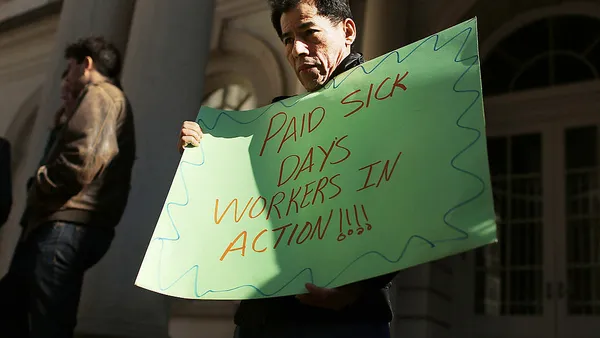Executive compensation is a hot topic in HR right now – and the U.S. Securities and Exchange Commission (SEC) has added fuel to the fire by proposing new regulations around executive pay.
The SEC’s Exchange Act Rule 10D-1 would force publicly traded companies to adopt policies that require executives to pay back bonuses and other incentive-based compensation found to have been given in error.
The proposed rule would direct national securities exchanges and national securities associations (together, the 'Securities Exchanges') to establish standards requiring issuers to have policies for the recovery of erroneously awarded compensation, commonly referred to as “clawbacks.”
The rule originally was mandated under the Dodd-Frank Wall Street Reform and Consumer Protection Act, along other pay for performance rules.
“These listing standards will require executive officers to return incentive-based compensation that was not earned,” said SEC Chairwoman Mary Jo White in a statement. “The proposed rules would result in increased accountability and greater focus on the quality of financial reporting, which will benefit investors and the markets.”
Clawbacks are hardly new. According to Equilar’s 2013 Clawback Policy Report, for example, the number of Fortune 100 companies that disclose clawback policies has increased dramatically in recent years – from 18% in 2006 to 89% in 2013, with much of the uptick driven by the 2008 financial crisis.
Brandon Yerre, a principal in the Dallas office of the PricewaterhouseCoopers Human Resource Services practice, says the proposed SEC rules are minimum standards to be used by the Securities Exchanges in developing their own listing standards, which may be more extensive than those offered by the SEC.
In fact, he explains each Securities Exchange would be required to develop draft listing standards and the SEC would then review and approve them before becoming final. The SEC is currently seeking public comment on its proposed rules, with all comments being due 60 days from when the rules are published in the Federal Register.
Yerre says affected companies must pay attention to the impact of the proposed rules on existing or potential policies, but should consider delaying any changes until all SEC guidance becomes final.
“There are accounting, tax [both company and individual] and legal implications associated with enforcing clawback policies that companies should consider when implementing them,” he says, “especially those subject to jurisdiction outside the U.S.
Yerre explains that the proposed rules provide discretion to companies in determining how much incentive compensation may need to be clawed back, if it was paid based on stock price or relative total shareholder return (TSR) measures.
“There could be a lot of ways to calculate the impact here, and the appropriateness of any of them could be dependent on the underlying cause of the restatement,” he explains. “This could be the most difficult issue for companies in trying to apply these rules.”
He notes that there is an individual tax implication if incentive compensation is clawed back. To the extent amounts are clawed back after an individual already paid their taxes, the individual may be able to request a federal tax deduction under the claim of right doctrine, but would need to consult with a tax advisor.
For now, it’s a proposal, but some form of the SEC rules regarding clawbacks will no doubt be in effect in 2016.














